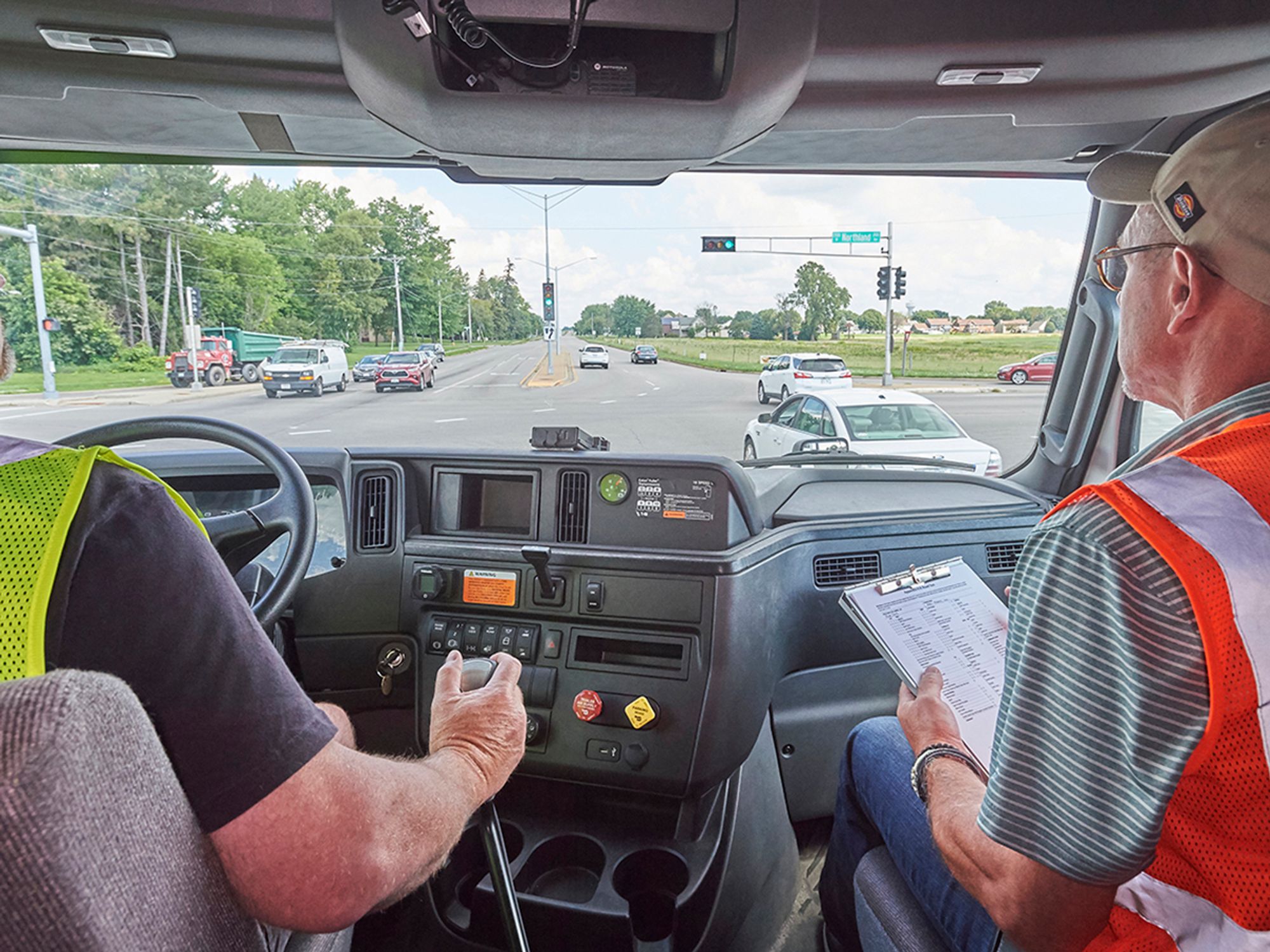Driver road test

- A road test is one of the major qualifications for drivers.
- Regulations do not specify who can administer a road test.
Section 391.11(b) states that drivers must be able to safely operate the motor vehicle assigned “by reason of training and/or experience” as one of the qualification requirements. Section 391.31 provides the employing carrier with the means for making this determination by requiring a driver to successfully complete a road test.
What needs to be included in the road test?
Road tests must be conducted using a motor vehicle of the type the driver is to be assigned, and as a minimum, the test must include:
- A pretrip inspection;
- Coupling and uncoupling a combination, if the driver may drive such equipment;
- Placing the vehicle in operation;
- Using the vehicle’s controls and emergency equipment;
- Driving in traffic and passing other vehicles;
- Turning;
- Braking, and slowing by means other than braking; and
- Backing and parking.
The motor carrier is required to rate the driver’s skill in each operation on a road test form, which will then be signed by the person giving the test.
Who can perform the road test?
The regulations do not specify a title or training for the individuals administering road tests. Carriers may use a person deemed competent, including:
- Someone within their organization (veteran driver, supervisor, etc.), or
- Someone outside of the operation who is a designated person.
A best practice is to use someone qualified to operate the vehicle because if the road test is unsuccessful, they can drive the vehicle back to the carrier.
Timing of the road test
Per FMCSA guidance, road tests can be given to driver-applicants without first testing for controlled substances or running the pre-employment query, but this may not be prudent. However, driver-applicants cannot perform safety-sensitive functions, such as:
- Delivering or picking up a trailer containing freight at a customer’s location, or
- Other forms of dispatch.
Carriers must obtain a verified negative controlled substance test result prior to a driver’s first dispatch to avoid violating the pre-employment drug testing regulations in 382.301, which could result in severe penalties and fines.
The exception for the Department of Transportation (DOT) pre-employment drug test does not apply to the pre-employment query of the commercial driver’s license (CDL) Drug and Alcohol Clearinghouse. Carriers must have a query report prior to allowing a CLP or CDL driver to operate a commercial motor vehicle (CMV) as defined in 383.5/382.107.
Upon successful completion of the road test, the person administering the test must complete a certificate of road test and give a copy to the driver. The original or a copy of the certificate must be placed in the driver qualification (DQ) file.
Equivalent of a road test
In lieu of a road test, the regulations allow a motor carrier to accept:
- A valid CDL issued by a licensing authority which requires a road test for the type of vehicle the driver is to be assigned; or
- A certificate of road test issued to the driver by a motor carrier during the preceding three years.
If employers intend to assign a vehicle necessitating the doubles/triples or tank vehicle endorsement on a CDL to a driver, they still must administer the road test in that type of vehicle and cannot use either exception.
Drivers using the Alternative Vision Standard in 391.44 to medically qualify for the first time, may not use the road test exception in 391.33. The driver must receive a road test in accordance with 391.44(d), unless an exception applies per 391.44(d)(5).
If employers accept a previous road test certificate or CDL license in lieu of a road test, they must retain a legible copy in the DQ file.
